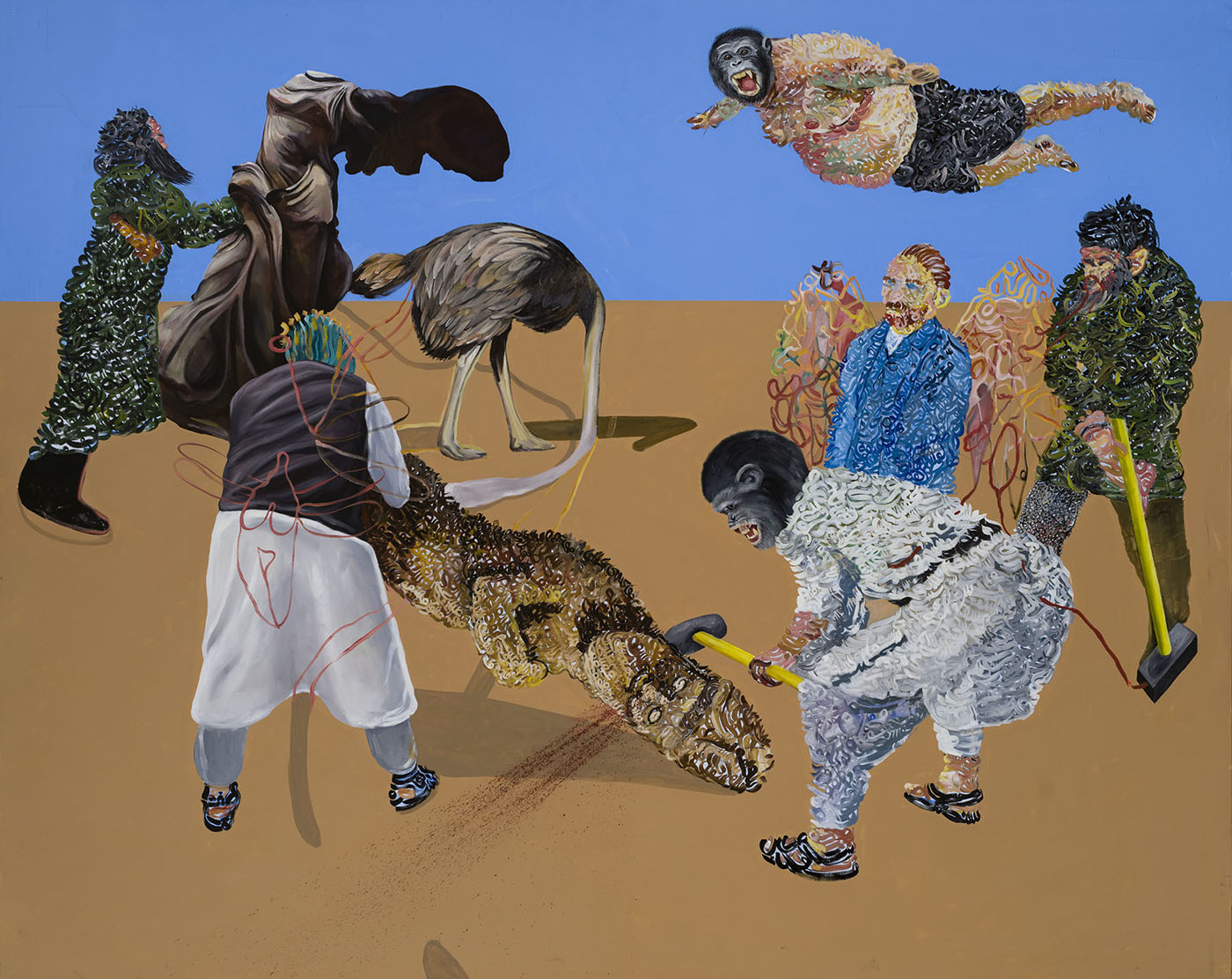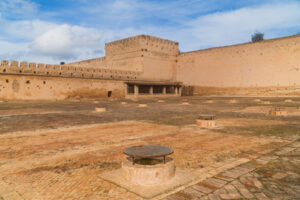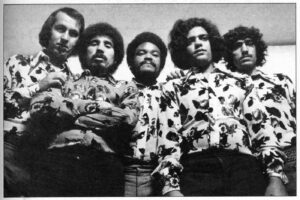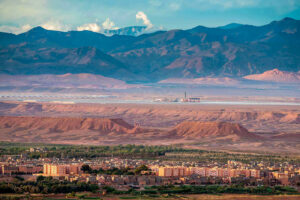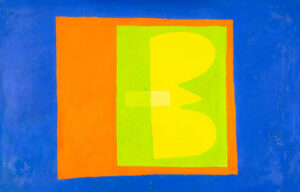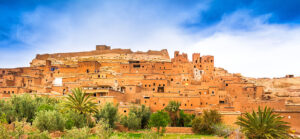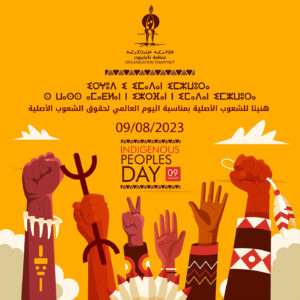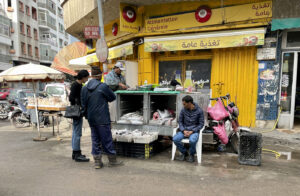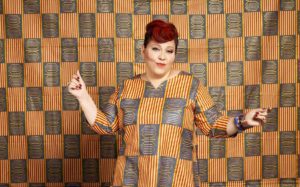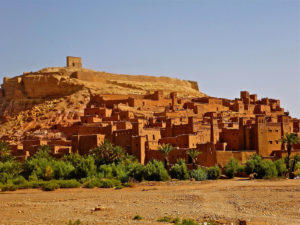Poetic Justice: An Anthology of Contemporary Moroccan Poetry
Edited and Translated by Deborah Kapchan with Driss Marjane
University of Texas Press (2019)
ISBN 9781477318492
El Habib Louai
Poetry has long been my first love, and reading and writing poetry has been a most favorable preoccupation during this prolonged pandemic. I find it soothes one’s troubled spirits and provides sustenance, particularly in insecure times.
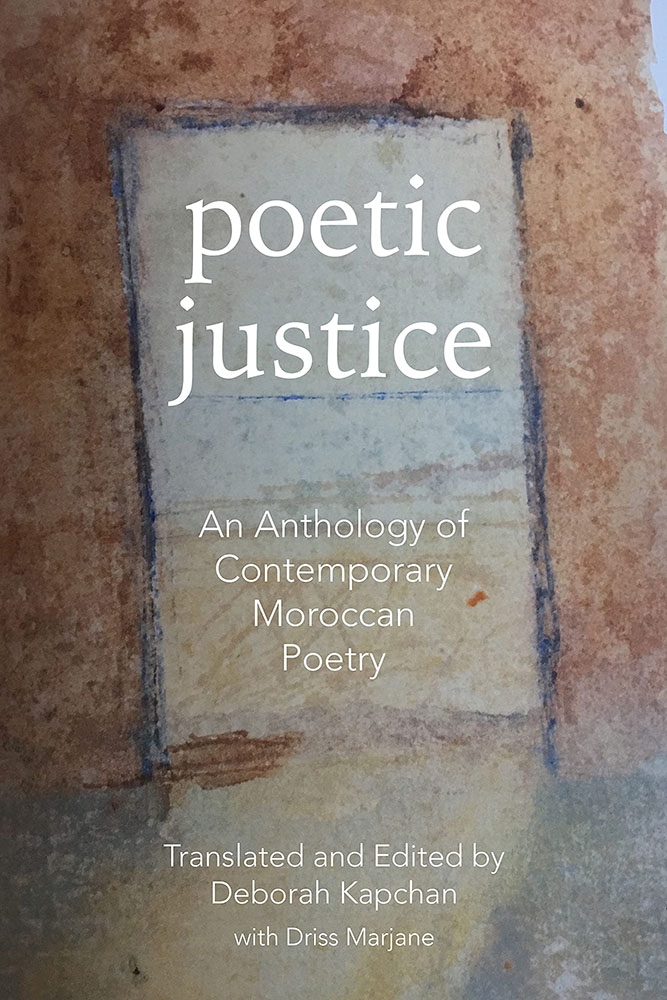
Deborah Kapchan’s anthology of contemporary Moroccan poetry, featuring more than 70 poets, has indeed been a soothing balm for me and for my limited circle of professional teachers, and I assume for any committed admirers of poetry and arts, during the subsequent months of the pandemic when everybody here in Morocco has been confined at home, waiting for the events of a life-changing calamity to unfold. It was near impossible to receive books in Morocco through the mail during the first months of the pandemic and everything seemed chaotic and unpredictable, but at least there was a possibility to read online and exchange one’s translations and latest writings through the virtual world — technology turns out to be not such a bad thing after all and it certainly brings us together, albeit at a distance, when the habitus of the external world become threatening.
Poetic Justice has tried to do justice to all the various schools and modes of Moroccan poetry through a representative body of work that underscores the different sensibilities characteristic of the Moroccan poetry scene across historical periods. I emphasize the fact that this anthology “has tried” since there is always room for unheard or irretrievable voices that might have been overlooked inadvertently. Kapchan does acknowledge in the introduction that, “with a few exceptions, the younger generation of poets is not included in this volume,” and notes that her intention was to concentrate principally on Moroccan poets who felt more at ease expressing themselves and sharing their views and ontological experiences of the land, its people, culture and history in Tamazight, Arabic or French.
Undoubtedly, the most distinctive feature of Poetic Justice lies in its appreciation, appraisal and celebration of the oral tradition and indigenous poetic sensibilities of Moroccan Amazigh poets and Moroccan Zajal rhapsodists. Ahmed Lemsyeh, a Zajal poet himself, paid his dues for his valuable assistance in tracking down Amazigh poems at The Royal Institute for Amazigh Culture in Rabat and for having put Kapchan in touch with many other poets who might have been overlooked or effaced from Mohammed Bennis’s canonical “short list.” This humbleness expressed by Lemsyeh illustrates a revival in the all-embracing spirit of an authentic artist who believes in cultural diversity on mutual grounds.
Kapchan appreciates and stresses the importance of orality/aurality as distinctive modes of expression that permeate our Moroccan poetic spectrum, by dwelling on some instances of Zajal (poetry in Moroccan Arabic, or Darija). Ahmed Lemsyeh is representative of this movement and his poems are quite sarcastic in their critique of greed, banal shallowness and malicious behavior, brought about by a capitalistic metamorphosis witnessed by a society that has recently started to move away from an agrarian standard of living. With a certain kind of angst and malaise, he addresses his readers:
Give me your attention
And listen carefully to my words
I want to listen to my bones
I ate too much guinea fowl and now I’m sick
I want to reconcile with my days
I want a cave where I can sequester myself
I’m sick of crowds
I want to be a letter and its envelope
A burning coal that’s wrapped in darkness
There are things hiding in my head
Entanglements that won’t be resolved except by death
Life is a flower with a worm
Like the ill-tempered and sarcastic personas of Lemsyeh, Driss Amghar Mesnaoui points to this impoverishment of the soul and scandalous absurdity that enshrouds Man’s life on a planet that is constantly dismembered by man-made materialistic desires and needs. Almost like a destitute person who finds himself in a hostile environment, the poet struggles to disentangle himself from a deplorable reality only to fall prey to alienation resulting from the indifference of those on whose behalf he speaks. Mesnaoui articulates:
From the white hell
I gathered the splinters of life
I discovered my time is the time of myself
Sometimes it makes me remember my duties
Sometimes it makes me forget.
The new world is based on
“Don’t do as I do
Do as I say”
See the needy getting more impoverished
and the rich getting even richer.
Will I, after this old disaster,
seek more riches?
A number of poems in the anthology ponder the political legacy of Moroccan history, especially those periods of upheaval and confusion engraved on the collective memory and hearts of the people as “The Years of Lead.” Artists, political dissidents and democracy activists were imprisoned and subjected to torture in hidden dungeons, simply because they held a different view from what was widely recognized as the status quo. Abdellah Rajie deplores most loudly the misery of his time and the condition of his oppressed people in the post-independence era, in a metaphorical language that risks demarcating him as a delusional nihilist instead of a witness to an era that yearned for emancipation. Rajie’s flame burned silently in his interiority, in every line he inscribed, aspiring for a homeland where love reigns harmoniously and simultaneously with freedom:
For you oh homeland oppression is drawn on the walls of the heart
Here I am leaving the shadow of my sweetheart and the eyes of my sweetheart
to follow your shadow
Here I am changing you into a suitcase of love oh homeland
Mostafa Houmir bemoans the death of one of his intimate comrades in his elegy “The Wall” without holding any grudge towards the oppressor:
I implore the Almighty
To pardon
My torturers
And all the monsters of the earth.
Similarly, Salah El Ouadie, a political prisoner who suffered under the cruel machinery of a despotic political system, contemplates in “Tazmamart” the ordeal of incarceration and entreats the ruler to have mercy on his subjects:
How many tears were shed there?
How many shudders did your hands know?
How many painful sighs rose to the highest sky
falling down to the ground to overwhelm
my ears wet with moaning?
…………..
You
who will rule over people
leave
an instant of affection
for your heart
Issues of gender and sexuality are also presented in a manner that reflects the controversial polemic about women’s agency, their rights as free subjectivities as well as their roles in a new socioeconomic condition segmented by neoliberal values and technological commodification. Rita El Khayat, for instance, dwells on the issues of forced marriage and sexual abuse to which women are subjected in conjugal relationships, established usually under the patronage of a fatherly figure. In her poem “The Raped Flower,” El Khayat describes the physical and emotional damage that Amina undergoes because of archaic legal inequality. She laments:
The judge married you
to the man who raped you
Your sex ripped apart like a crushed flower
bled yet again
…………..
The judge, Amina, here in these parts
is an eager and perverse coward
bribery a manure in his stomach
In Mohamed Achaari’s poem “A Stone Tale,” the woman is portrayed as an insurgent individual that transcends the limits of the patriarchal representations of her as a docile angel to become a rebellious agent aware of disparities permeating dysfunctional matrimonial relationships. Achaari’s persona ruminates on the possibilities of return to a woman’s authentic self as a belated performer in the narrative of unrequited love:
She wants nothing the way it is
She wants to leave him
A traditional tale indeed . . .
But whatever the woman does
she will not leave her husband
It is too late
the two men have aged
And love is no longer a man
but a story
Nothing in it is clear but a woman
If she could find it within herself
she would escape the tale
release her life to the wind
Similarly, Mehdi Akhrif appears to value in a celebratory manner a prototype of woman who is not depicted as a cheerful constituent that embellishes the male’s environs, but rather as an intellectually fierce agent with an indispensable part to the play in the ontological experience as such. Akhrif is in quest for women who:
gather kindling from the ashes of
words
And women
igniting with agony
on the mirrors of words.
I have women who safeguard my despair.
They are the orphan’s flowers.
Mohamed Bennis’s Andalusian “Other Self” in a Jungian sense, with all its unacknowledged proclivities and desires, owes a great deal of gratitude to the women of his country for their nobility, care and intelligence. He invokes a category of women different from the ones who are stereotypically portrayed as ignorant, idle and instinctive beings with a propensity for conspiracy and intrigues. Bennis expresses this sense of recognition in the following verses:
I am the one raised on women’s laps
and between their festive hands
They were the ones who taught me poetry, script
and the Qur’an
From their secrets I learned what others
hardly knew
In this perpetual quest for the genuine meaning of love and affection, both the female and the male find themselves in awkward situations analogous to contrived chivalric theatrical scenes in postmodern times. The beloved and the lover play their assumed roles in spaces such as parks, airports or Café de l’Opera, where Taha Adnan’s persona, due to discrimination against immigrants, looked like “a spot of oil/ On a white shirt,” a setting where he is scrutinized by “a Flemish woman disguised as baroness in a classic film” while “clutching her handbag between her arms.”
Issues of gender and sexuality are propounded in relation to exiles and émigrés, as in Yassin Adnan who responds with a poem that anticipates, in apocalyptic epithets, the aftermath of oppressed people as they approach the 2000s. Yassin invokes more consciously the condition of immigrants gazed at suspiciously in public spaces, those driven out of their countries due to ethnic and religious conflicts. Yassin draws his readers’ attention to the ordeal of these oppressed minorities when he affirms:
I didn’t come here by chance
I crossed seas and deserts
I saw corpses hanging down
from wire cables in abandoned towns
I passed Yazidi Kurds
with the picture of the devil
on the walls of their shrine in northern
Iraq
who suddenly started reciting their
sacred legend
to naked grandchildren
Indigenous people’s culture, traditions, rights and prerogatives are also explored in poems by Amazigh writers such as Ali Sedki Azaykou, one of the first Amazigh poets to turn to the politics of language and cultural identity. In his poem “Words,” which I would rather translate as “Language,” Azaykou insists on identifying and glorifying Tamazight as a space for self-enunciation to ward off linguistic discrimination and cultural amnesia:
Amazigh is my verb.
no one understands it
bearer of so much meaning
who can dance on it?
alone I hold fast to it
my verb suspended
like a rope around my neck
my language still alive
continues to speak
in the middle of the deaf; it is not tired
the thirsty word must
quench our thirst
There is also Khadija Arouhal who turns to natural components like the flower, as an emblem of the sublime and virtuous worthiness, to guide her through dark dungeons and save her from the lies of a miserable and corrupt world. She is weary of unrealistic political ballyhoo that merely tickles naïve simpletons and she seems to find a solace in supplicating Amazigh mythical figures like ‘Ounamir’ and ‘Tanirt’ to redeem her from a land where justice is not only blind, but also devoid of common sense:
Oh horse of Ounamir
because the foot gets weary
the way is endless
the heel bruised
the gravel
has no mercy!
Lift me up!
Raise me!
Will I find Tanirt
waiting for me?
Will I find
peace among the stars
and a path without thorns?
Will I find a land where rights
exist?
I would like to forget you oh earth.
I would like to forget myself
Ali Chouhad, who is equally an engaged Amazigh singer and a lyricist with a sensitive disposition, embraces poetry or the spoken word as an elementary practice that endows him with a sense of originality and ethical basis against wickedness, injustice and vices of the mundane world. Chouhad would rather resort to poetry as a sublime and liberating artistic form than surrender to the banality and ignorance. Poetry, in his view, coalesces both pleasure and difficult labor as it struggles to come into being. He confesses, “Verses do no harm to garner blame/ they make no one a gainful income.” Poetry does not seek to retaliate or accumulate bounties at the expense of other people’s honor, dignity and right to difference. It is a raison d’etre, a fountain that does not dry up nor die. His last outcry deprecates the herd’s persistent indulgence in self-destruction and pursuit of ignoble causes that disperse its efforts. Chouhad laments:
Oh poetry!
How much time do I need to warn
the herd that rushes to the summit
I have no more worries, I no longer expect the worst
Let them fall into the abyss without any rescue
Poetic Justice captures the urgency of the situation by blending some of the representative poetic voices of the past with new sensibilities embraced by contemporary Moroccan poets who experienced the conflicts of the “Arab Spring,” the War on Terror and immigration crises. It has equally included other voices that participated in the aesthetic experience as such without necessarily belonging or enmeshing themselves in identity politics. By doing so, this anthology underscores the perpetual virtues that the poetic brings to a fragmented human reality. Implicitly, it reiterates that Hegelian classical formula which propounds that, “poetry has always been and is still the most universal and widespread teacher of the human race” (Hegel’s Aesthetics, Vol. 2, 972; Hegel, Werke, Vol. 15, 239–40).



